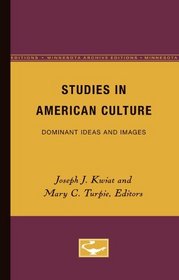Search -
Studies in American Culture: Dominant Ideas and Images
Studies in American Culture Dominant Ideas and Images
Studies in American Culture was first published in 1960. Minnesota Archive Editions uses digital technology to make long-unavailable books once again accessible, and are published unaltered from the original University of Minnesota Press editions.The last decade has seen a revolutionary interest at colleges and universities both in this ... more »
Studies in American Culture was first published in 1960. Minnesota Archive Editions uses digital technology to make long-unavailable books once again accessible, and are published unaltered from the original University of Minnesota Press editions.The last decade has seen a revolutionary interest at colleges and universities both in this ... more »
ISBN-13: 9780816660384
ISBN-10: 0816660387
Publication Date: 1/4/1960
Pages: 242
Edition: Minnesota Archive Ed
Rating: ?
ISBN-10: 0816660387
Publication Date: 1/4/1960
Pages: 242
Edition: Minnesota Archive Ed
Rating: ?
0 stars, based on 0 rating
Publisher: Univ Of Minnesota Press
Book Type: Paperback
Members Wishing: 1
Reviews: Amazon | Write a Review
Book Type: Paperback
Members Wishing: 1
Reviews: Amazon | Write a Review




